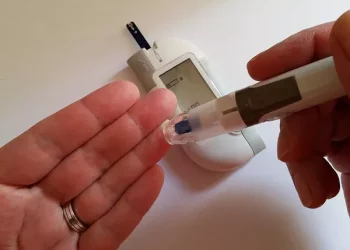Cinnamon, a common spice with a long history in traditional medicine, has been studied for its potential benefits in managing diabetes, though the findings remain mixed. While some studies suggest it may help manage blood sugar levels, health experts caution against using it as a primary treatment for diabetes.
Research Findings on Cinnamon and Diabetes
Cinnamon, derived from the bark of Cinnamomum trees, contains an active compound called cinnamaldehyde, which may have a role in improving insulin sensitivity. Insulin resistance is a hallmark of type 2 diabetes, where the body becomes less responsive to insulin, making it difficult to regulate blood sugar levels. Some studies suggest cinnamon can mimic insulin’s effects, potentially improving blood sugar control.
A meta-analysis involving type 2 diabetes patients found that cinnamon supplementation over 10 weeks led to improved fasting blood sugar levels and better hemoglobin A1C readings, a marker of long-term blood sugar control. However, other studies have found no significant effects on blood sugar levels. Research on the spice’s benefits for prediabetes also shows promise, with one small study indicating that cinnamon supplementation might reduce the rise in glucose levels.
Despite some positive results, experts emphasize that the evidence is not yet strong enough to recommend cinnamon as a medical treatment for diabetes. “Studies on cinnamon as an adjunct therapy for type 2 diabetes have shown conflicting results,” notes Nicole Patience, a certified diabetes care specialist.
Health Benefits Beyond Blood Sugar Control
Cinnamon’s health benefits extend beyond blood sugar management. The spice contains antioxidants called polyphenols, which may help combat free radicals and reduce chronic inflammation, both of which are prevalent in individuals with diabetes. Inflammation is a key factor in diabetes-related complications, such as cardiovascular disease.
Additionally, cinnamon may support metabolic health by improving blood lipid profiles. A review suggests that consuming about 1.5 grams of cinnamon daily could reduce triglycerides, cholesterol levels, and blood pressure. It may also alleviate symptoms of rheumatoid arthritis, an autoimmune condition that often coexists with type 1 diabetes, due to cinnamon’s anti-inflammatory properties.
Incorporating Cinnamon into Your Diet
While the scientific evidence on cinnamon’s role in diabetes management is inconclusive, it can still be a flavorful addition to your diet. Sandra Arévalo, a nutrition expert, recommends using cinnamon to enhance the flavor of desserts and drinks, potentially reducing the need for added sugars. It can be easily incorporated into coffee, tea, oatmeal, and yogurt.
For those seeking higher doses, cinnamon supplements are available, offering doses as high as 6 grams per serving. However, it’s important to note that supplements are not regulated by the U.S. Food and Drug Administration (FDA), and their safety and efficacy are not guaranteed. Overconsumption of cinnamon supplements can lead to gastrointestinal issues, and large doses may pose a risk to liver health due to the presence of a compound called coumarin.
Before starting cinnamon supplements, it’s crucial to consult with a healthcare provider to avoid potential interactions with medications and ensure the supplement’s safety. Look for supplements that are third-party tested for quality.
Conclusion
Cinnamon may offer some benefits for people with diabetes, particularly in improving insulin sensitivity and reducing inflammation. However, more research is needed to fully understand its effects. While it’s safe for most people when consumed in moderation as part of a balanced diet, those considering supplements should exercise caution and consult a healthcare professional.
Related topics:
Endocrine Society Urges Restoration of Vital Diabetes Prevention Program
Continuous Glucose Monitors Enhance Traffic Safety for Diabetic Drivers
GLP-1 Agonists Show Promise for Kidney Transplant Patients with Type 2 Diabetes























